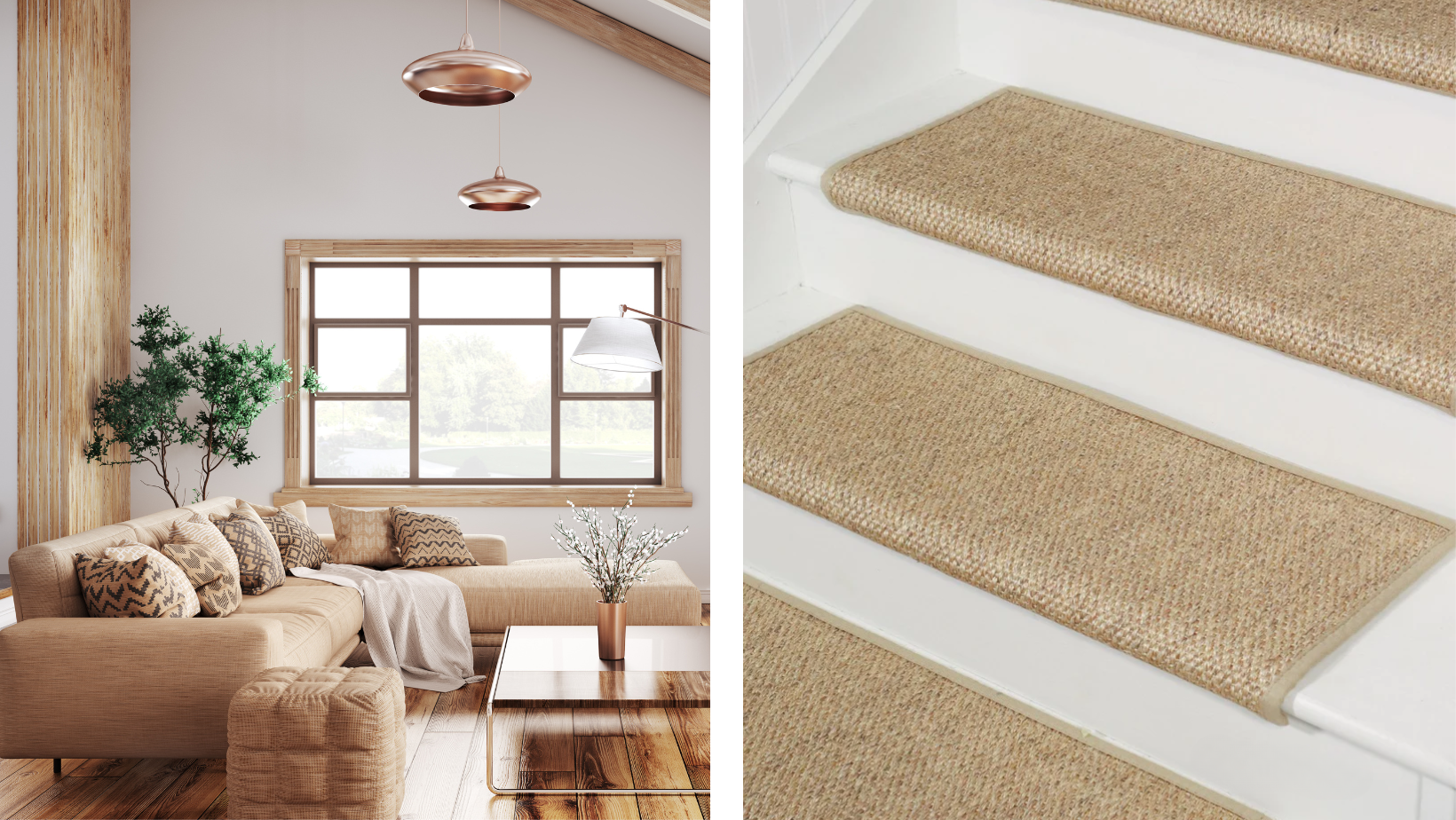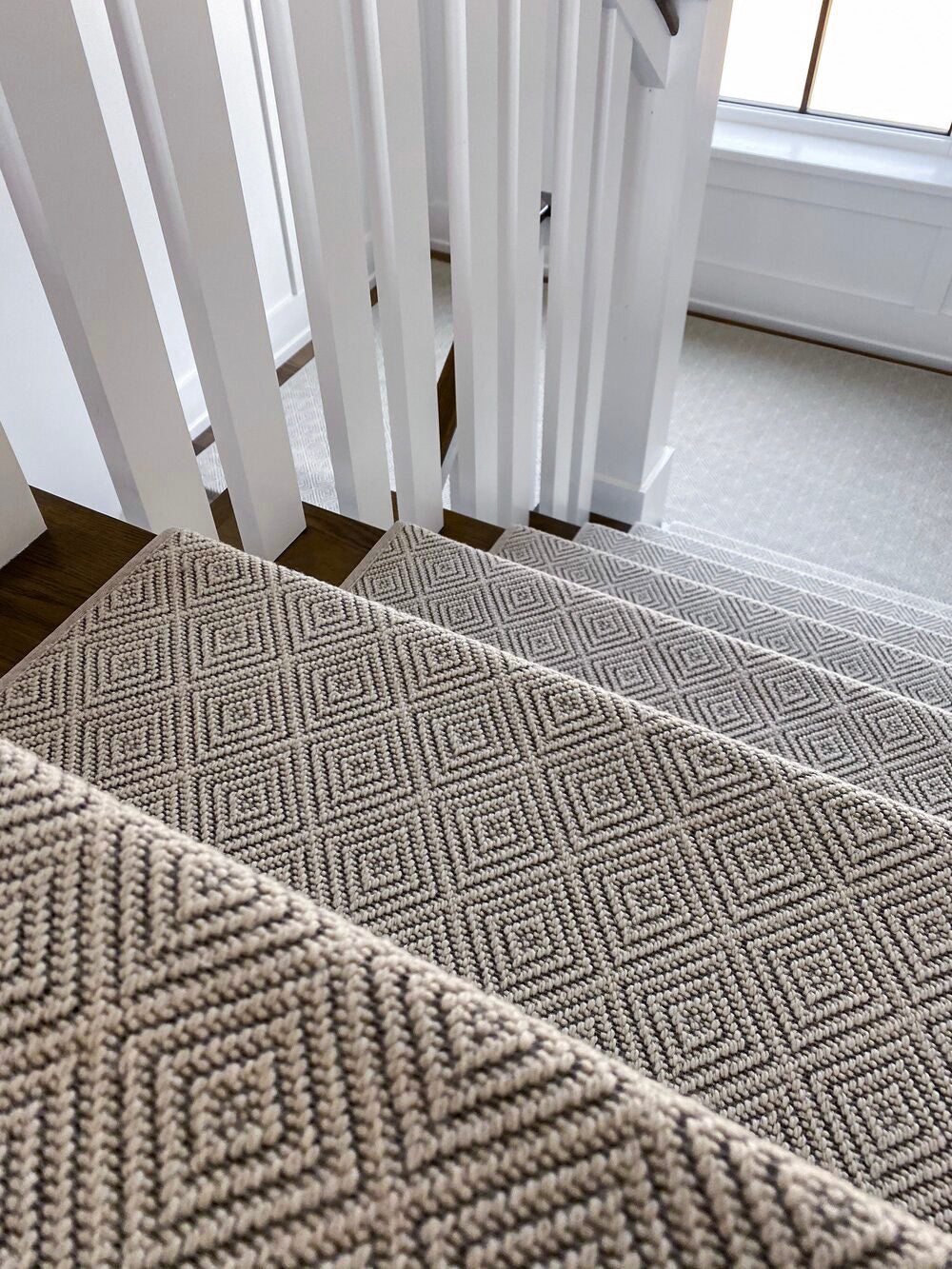Stairs can be dangerous for anyone, but they can be especially hazardous for pets, children, and the elderly. Falls on stairs can result in serious injuries, so it's important to take steps to prevent accidents from happening.
One way to increase safety on stairs is by using stair grips.
Types of stair grips:
-
Adhesive strips
-
Rubber stair treads
Why Stair Grips are Important for Safety
Preventing Slips and Falls on Stairs
Falls on stairs can result in serious injuries, including broken bones, head trauma, and even death. According to the National Safety Council, falls are the leading cause of non-fatal injuries for all age groups, and the second leading cause of death for people over the age of 65.
The Dangers of Stairs for Pets, Children, and the Elderly
Pets, children, and the elderly are at a higher risk of falling on stairs due to their age, physical limitations, or lack of coordination. Pets can slip on hardwood or tile stairs, while children may run up and down stairs without paying attention to their surroundings. The elderly may have difficulty with balance and coordination, making stairs a hazard.
How Stair Grips Can Help Prevent Accidents
Indoor stair grips can help prevent slips and falls on stairs by providing traction and grip. They can also help absorb impact in case of a fall, reducing the risk of injury. By adding stair grips to your stairs, you can make them safer for everyone in your household.
The Importance of Choosing the Right Type of Stair Grip
Choosing the right type of stair grip is important to ensure maximum safety and effectiveness. Different types of stair grips work better for different types of stairs and household members. It's important to consider factors such as the type of stairs in your home, the amount of foot traffic on your stairs, and the needs of your household members and pets when choosing a stair grip.
Types of Stair Grips
There are several types of stair grips available, including metal stair grips. Each has its own pros and cons. Here are some of the most common types of stair grips:
Adhesive Strips
Adhesive strips are a popular and affordable option for adding traction to stairs. They are easy to install and can be cut to fit any size of stair. Adhesive strips are made of a non-slip material that provides grip and traction.
How Adhesive Strips Work
Adhesive strips work by providing a non-slip surface on stairs. They are made of a textured material that provides grip and traction, even when wet. Adhesive strips are easy to install and can be cut to fit any size of stair.
Pros and Cons of Adhesive Strips
Pros:
-
Affordable
-
Easy to install
-
Can be cut to fit any size of stair
Cons:
-
May not be as durable as other types of stair grips
-
May peel off over time
-
May not provide as much traction as other types of stair grips
Best Uses for Adhesive Strips
Adhesive strips are best used on stairs with low to moderate foot traffic. They are also a good option for stairs that are not used frequently, such as basement stairs or attic stairs.
Carpet Stair Treads
Carpet stair treads are another popular option for adding traction to stairs. They are made of a carpet material that provides grip and traction. Carpet stair treads come in a variety of colors and patterns, making them a good option for adding style to your stairs.
How Carpet Stair Treads Work
Carpet stair treads work by providing a non-slip surface on stairs. They are made of a carpet material that provides grip and traction, even when wet. Carpet stair treads are easy to install and can be found in custom options.
Pros and Cons of Carpet Stair Treads
Pros:
-
Provide good traction
-
Come in custom options
-
Come in a variety of colors and patterns
Cons:
-
May be more expensive than other types of stair grips
-
May be more difficult to clean than other types of stair grips
-
May wear out over time
Best Uses for Carpet Stair Treads
Carpet stair treads are best used on stairs with moderate to high foot traffic. They are also a good option for stairs that are used frequently, such as main stairs or stairs leading to bedrooms.
Rubber Stair Treads
Rubber stair treads are a durable and long-lasting option for adding traction to stairs. They are made of a rubber material that provides grip and traction. Rubber stair treads come in a variety of colors and patterns, making them a good option for adding style to your stairs.
How Rubber Stair Treads Work
Rubber stair treads work by providing a non-slip surface on stairs. They are made of a rubber material that provides grip and traction, even when wet. Rubber stair treads are durable and long-lasting, making them a good option for high-traffic areas.
Pros and Cons of Rubber Stair Treads
Pros:
-
Durable and long-lasting
-
Provide good traction
-
Come in a variety of colors and patterns
Cons:
-
May be more expensive than other types of stair grips
-
May be more difficult to install than other types of stair grips
-
May be more difficult to clean than other types of stair grips
Best Uses for Rubber Stair Treads
Rubber stair treads are best used on stairs with high foot traffic. They are also a good option for stairs that are exposed to the elements, such as outdoor stairs.
Choosing the Right Stair Grip for Your Home
When choosing a stair grip for your home, it's important to consider factors such as the type of stairs in your home, the amount of foot traffic on your stairs, and the needs of your household members and pets. Here are some factors to consider when choosing a stair grip:
The Type of Stairs in Your Home
Different types of stair grips work better for different types of stairs. For example, adhesive strips may not be as effective on carpeted stairs as they are on hardwood or tile stairs. Carpet stair treads may not be as effective on outdoor stairs as they are on indoor stairs. Unless you go with an indoor/outdoor option.
The Amount of Foot Traffic on Your Stairs
Stairs with high foot traffic may require a more durable and long-lasting stair grip, such as rubber stair treads. Stairs with low to moderate foot traffic may be fine with a less durable option, such as adhesive strips.
The Needs of Your Household Members and Pets
Consider the needs of your household members and pets when choosing a stair grip. For example, if you have a pet that frequently uses the stairs, you may want to choose a stair grip that provides good traction for pets. Carpet stair treads are one of the best options when choosing stair grips for dogs.
Conclusion
Stair grips are an important safety feature for any home with stairs. By providing traction and grip, they can help prevent slips and falls on stairs, especially for pets, children, and the elderly. When choosing a stair grip for your home, consider factors such as the type of stairs in your home, the amount of foot traffic on your stairs, and the needs of your household members and pets. Follow the manufacturer's instructions for installation and maintenance, and replace your stair grips when they become worn or damaged. With the right stair grips, you can make your stairs safer for everyone in your household.




